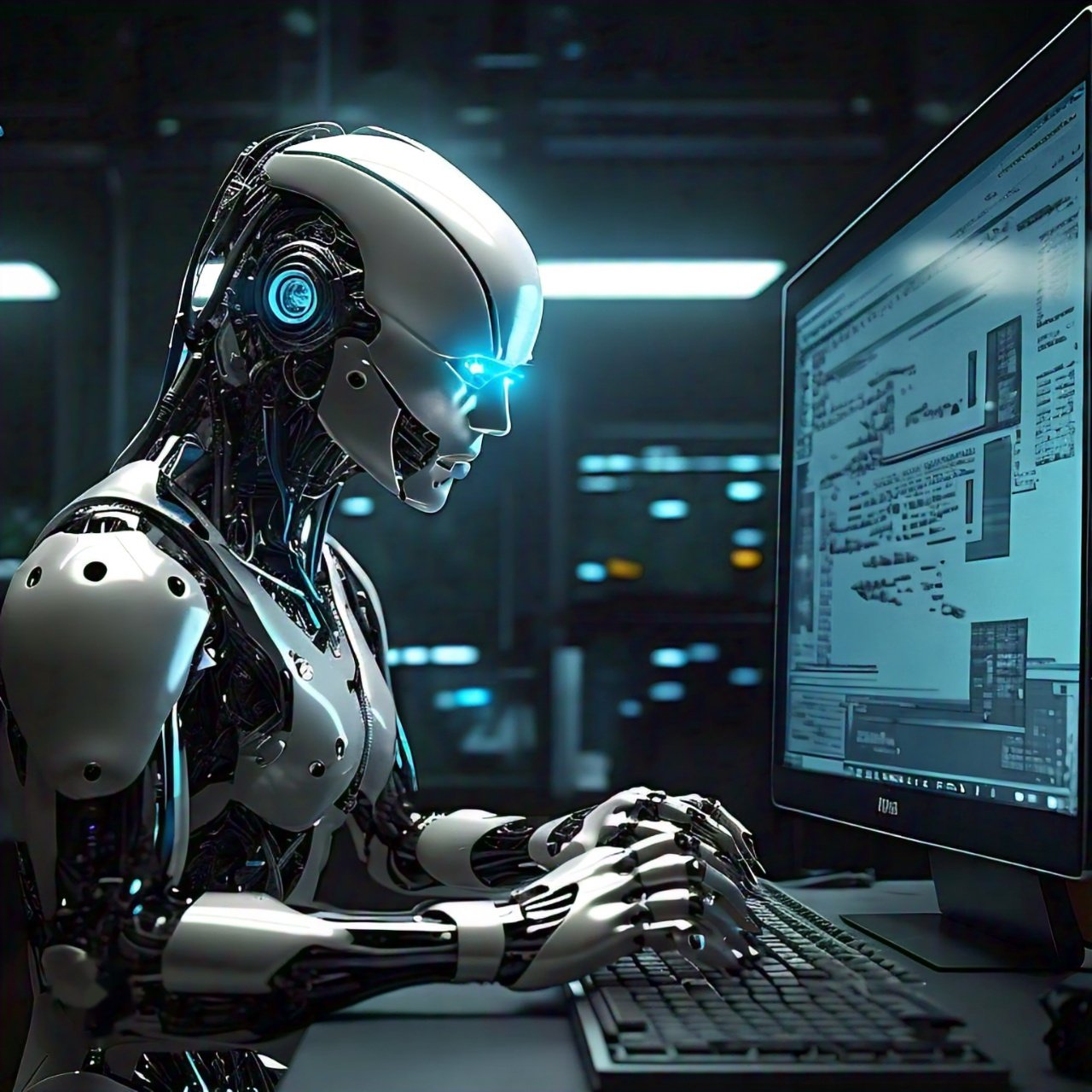Artificial Intelligence
AI is the development of computer programs that can think and learn like humans, and for the processing power required to make decisions. I have said that the history of AI dates back to the mid-1950s, when it became a field of study in universities. From then up through the 1980s, AI has been up and down several times--with lots of false starts along the way too. Nowadays people have got used to AI applications everywhere they go - in lots of industries and throughout our ordinary daily actions. It explores the historical development of AI technology, analyzes a variety of major types, and projects that future development path will bring the moral problems sets with it as well. An example of how we use machine translation Artificial intelligence can create simply woven text from manifold language input with minute tweaks or none at all. In those years to come further advanced symbolic reasoning and expert systems were little on radical human knowledge production and problem solving flow systems integration steps took advantage of prosperous air flow features. However, the rule-based systems were stiff. They couldn't adapt well to the real world. The theory of discovery of machine learning algorithms in the mid-eighties was a major breakthrough. It allowed a computer to be trained by feeding in some data and then use that training to project the remaining examples of more than it had been told. The deeper layer of machine learning was provided by neural networks which imitated the brain Inspired by. What has emerged is a perfect fusion of advanced algorithms, large-scale data and computational power, making artificial intelligence an actuality that is everywhere.
Types of AI
There are two kinds of AI, broad and narrow. Algorithms enable the machines to think and perform actions we used to regard as rational only when they were carried out by humans. Narrow AI refers to artificial intelligence with specific applications. For example, it can play chess or recognize images. Any form of AI that exists at present is of limited nature. The next step in this process of evolving machines is artificial general intelligence, which would possess all-round skills and could even think like a human. While narrow AI, more specifically focussed AI are leading the current trends, AGI or AI similar to human intelligence is still more a concept than any kind of reality at the moment.
Applications of AI
AI has made major strides in recent years, and is already proceeding from concept to reality in many different sectors. For example, AI enables features such as providing personalized product recommendations which enable companies like Amazon to increase their income. It also helps in supply chain management, where AI apps can predict restaurant meal orders based on the customers. Moreover, devices such as Alexa and Siri in natural language processing and AI programs are able to defeat even the top chess and Go players in different games. The most promising AI advances relate to sectors such as healthcare, education or smart cities thus to contribute further progressing society issues.
Ethical Considerations
Artificial Intelligence, like most technologies, involves a measure of risk. Moreover, the prejudice and bias of its algorithms are known to be influenced by what type data is fed in for training, and this may thus lead to continuation of the same prejudices. Due to the element in AI of automaton and decision-making, it needs therefore to be properly supervised for safety control. Furthermore, seeing that AI systems can handle knowledge-based work, their future development may also lead employment structure and market pattern disturbances. All these make it imperative as AI development moves ahead at full speed to promote ethics-related research and to control the industry through regulations.
The Future of AI
Over the years to come, AI shall help refine automation by supplanting human work and create positive impacts on society. MvM's grand goal of realizing artificial general intelligence is still an unachievable-yet extraordinary one all the same. By contrast, there will be an increasing use of specialized narrow AI in fields such as education, healthcare, transportation, manufacturing and so forth aimed mainly at focused improvements. Therefore, it is ultimately a grand vision of the world in which all human beings are healthy, happy and productive that has a deep foundation in ethical principles and people´s well-being.
Furthermore, the essay also covers some information on how artificial intelligence technology has changed over time and what state it is presently. Engaging AI For the so-called advancements in AI, however, this show mainly discusses narrow and general diversity of this technology as Enter the Roots the movie speeds past. Verifiable suggestions on real-world applications of AI. In the essay we have had, we can look ahead to some more direction of development, together with immediate ethical concerns about bias, safety, and job loss caused by progress in AI. Certainly, by and large it favors the overall positive effects that AI may bring. And it also emphasizes proper methods of AI development. When encountering any difficulty with the content of this newsletter or others concerning AIG, you can also write me directly at any time..






